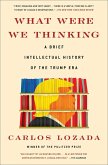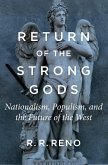In these days, it is hard to remember a time more than a half-century ago when scientists were gods, honored and trusted both to defend and heal us, creating ultimate weapons as well as the polio vaccine. We took our shots because we trusted the experts. We trusted them to test atomic weapons, aboveground at first, because we weren't aware of cancers among the "downwinders" and knew that the US was in a weapons race. This book is the inside story of kiloton to megaton atomic weapons being exploded three hundred miles above the earth in secret programs that most people still don't know about, to see what would happen to communications and radar in an atomic war.
Even in the very first atomic test, they were playing with unknown consequences at a time when the "computers" were women running Marchant mechanical calculators. It is also the story of these same scientists, beginning fifty years ago, turning their efforts toward making power from controlled fusion to get us away from dependence on oil and using their unique positions and knowledge to set up arms control agreements.
Claude Phipps takes us on a very personal visit with two of the central characters, Dr. Ray Kidder and Nicolas Christofilos of the Livermore Labs, at the beginning of this change of direction. As he says, "It seemed to me that the closer someone's work was to nuclear weapons, the bigger the ego. Along with the big egos, scientific isolation, and tremendous power, which characterized the national defense establishment went tales of recklessness." But so did heroism. His point is that human gods have human foibles. We learn more about this aspect in the third chapter of this book.
Even in the very first atomic test, they were playing with unknown consequences at a time when the "computers" were women running Marchant mechanical calculators. It is also the story of these same scientists, beginning fifty years ago, turning their efforts toward making power from controlled fusion to get us away from dependence on oil and using their unique positions and knowledge to set up arms control agreements.
Claude Phipps takes us on a very personal visit with two of the central characters, Dr. Ray Kidder and Nicolas Christofilos of the Livermore Labs, at the beginning of this change of direction. As he says, "It seemed to me that the closer someone's work was to nuclear weapons, the bigger the ego. Along with the big egos, scientific isolation, and tremendous power, which characterized the national defense establishment went tales of recklessness." But so did heroism. His point is that human gods have human foibles. We learn more about this aspect in the third chapter of this book.
Dieser Download kann aus rechtlichen Gründen nur mit Rechnungsadresse in A, D ausgeliefert werden.









